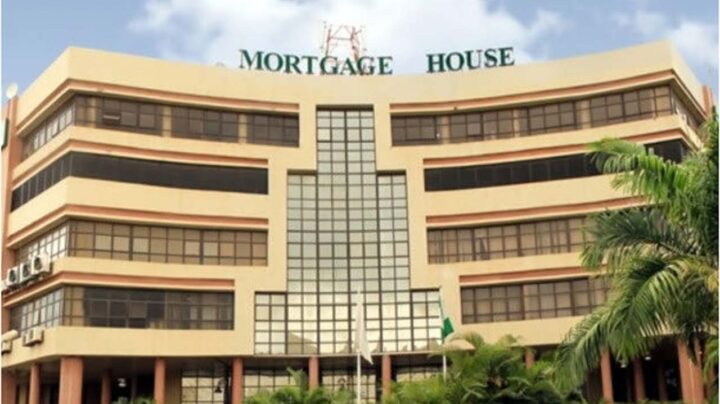The Federal Housing Authority Mortgage Bank (FHAMB) has announced plans to roll out a N27 billion loan package aimed at addressing Nigeria’s chronic housing deficit, which is estimated to exceed 28 million units. The initiative, which forms part of the bank’s broader strategy to expand access to affordable housing finance, is expected to benefit thousands of low- and middle-income earners across the country.
Speaking at a recent briefing, officials of FHA Mortgage Bank emphasized that the new loan scheme is designed to provide affordable mortgage options and bridge financing for developers, thereby easing one of the major constraints facing the real estate sector—limited access to funding. The bank explained that the loans will be made available to qualified individuals and housing developers under flexible terms, ensuring inclusivity and sustainability.

The announcement comes at a critical time when Nigeria’s housing sector continues to struggle with rising costs of construction materials, inflationary pressures, and high interest rates. For millions of Nigerians, owning a home remains out of reach, with rent often consuming a disproportionate share of household income. FHAMB’s intervention is therefore being seen as a significant step toward fulfilling the government’s goal of providing affordable housing to citizens.
According to FHA Mortgage Bank Managing Director and Chief Executive Officer, Mr. Hayatudeen Atiku, the loan program aligns with the Federal Government’s broader housing agenda and will be implemented in collaboration with the Federal Mortgage Bank of Nigeria (FMBN), state governments, and private developers. He noted that the N27 billion injection is not only aimed at financing housing purchases but also supporting large-scale construction projects that can deliver mass housing at lower costs.
Atiku explained that the initiative would be accessible to civil servants, private sector employees, and self-employed individuals who meet the criteria, adding that the bank has put in place mechanisms to ensure transparency and accountability in the disbursement process. “Our mission is to provide affordable mortgage loans and construction financing to Nigerians in order to reduce the housing deficit. We believe this N27 billion package will go a long way in achieving that,” he said.
Stakeholders in the housing and financial sectors have welcomed the development, noting that limited access to mortgage financing has long been one of the biggest barriers to homeownership in Nigeria. With commercial bank lending rates often exceeding 20 percent, many Nigerians are unable to access long-term financing to build or buy homes. The FHAMB loan scheme, with its focus on affordability, could therefore provide a lifeline to thousands of households.
Experts also note that the initiative could stimulate growth in the construction industry, creating jobs and boosting economic activity. The housing sector has strong multiplier effects, as it supports industries such as cement, steel, wood, and furniture. By injecting N27 billion into housing finance, FHAMB is expected to generate thousands of direct and indirect jobs, contributing to Nigeria’s economic recovery efforts.
However, some analysts caution that the success of the scheme will depend on effective implementation, particularly in ensuring that loans are disbursed to genuine beneficiaries and not diverted for other purposes. Transparency, proper oversight, and strict monitoring will be critical to ensuring that the funds achieve their intended impact.
The housing deficit has been a recurring challenge in Nigeria, with urbanization, population growth, and rising poverty levels contributing to worsening conditions. Rapid rural-to-urban migration has intensified pressure on existing housing infrastructure in cities such as Lagos, Abuja, and Port Harcourt, leading to overcrowding, slums, and inadequate living conditions. Government efforts to address the problem have often been hampered by limited resources, bureaucratic delays, and corruption.
In this context, FHA Mortgage Bank’s N27 billion loan scheme is being seen as part of a broader solution, though experts agree that much more investment is needed. They point out that bridging Nigeria’s housing gap requires trillions of naira in sustained investments, innovative financing mechanisms, and strong partnerships between government, financial institutions, and the private sector.
International organizations such as the World Bank and the African Development Bank (AfDB) have also called for reforms to unlock the potential of Nigeria’s housing sector. They argue that creating an enabling environment for private developers, streamlining land acquisition processes, and providing infrastructure such as roads, water, and electricity are essential to lowering construction costs and expanding access to affordable housing.
FHA Mortgage Bank has assured Nigerians that the loan program will be rolled out in phases to maximize impact. Priority will be given to projects that focus on mass housing and affordability, with particular attention to first-time homebuyers. The bank also pledged to strengthen partnerships with cooperatives and housing associations to reach grassroots communities.
Looking ahead, experts believe that the success of this initiative could encourage further interventions from both local and international investors. By demonstrating that affordable mortgage finance can be delivered effectively, FHAMB could set the stage for more ambitious housing programs in the years to come.
For now, the N27 billion loan package represents a welcome intervention in a sector that desperately needs fresh capital. It offers hope to thousands of Nigerians aspiring to own their own homes and signals a renewed commitment by the government and its institutions to tackling the housing crisis head-on.
As the program takes shape, all eyes will be on FHA Mortgage Bank to deliver on its promises and ensure that the funds translate into tangible improvements in housing availability and affordability. If successful, the initiative could mark a turning point in Nigeria’s housing sector, bridging the gap for citizens who have long been excluded from homeownership.
Support InfoStride News' Credible Journalism: Only credible journalism can guarantee a fair, accountable and transparent society, including democracy and government. It involves a lot of efforts and money. We need your support. Click here to Donate
